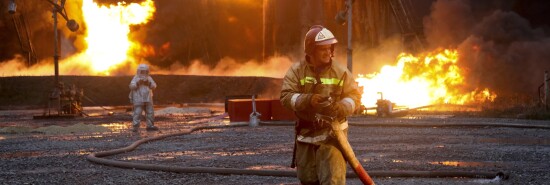
Most Ukrainians are not pro-Russian
Adam Zivo
Video Embed
Some believe that Russian-speaking Ukrainians want to join Russia. This may have been true to some extent 10 years ago, but it’s emphatically not the case now. President Vladimir Putin’s war has extinguished almost all of the Russophilia that once existed in the country.
Pro-Russian sentiments are concentrated in the Russian-speaking east and south, particularly among older people who were left behind by deindustrialization and feel nostalgic for the Soviet Union. However, a 2014 poll put support for unification at only 33% in Donetsk, by far the most pro-Russian Ukrainian city at that time. But Putin’s 2014 annexation of Crimea and his military backing of a separatist movement in east Ukraine’s Donbas region changed everything. Support for joining Russia plummeted to 5%, and independence-minded Ukrainians became almost evenly split about open borders. After the 2022 invasion, antipathy for Russia soared, and support for closed borders skyrocketed.
RUSSIA LAUNCHES FRESH WAVE OF STRIKES ON KYIV, TARGETING CRITICAL INFRASTRUCTURE
In Kharkiv, several residents I spoke to estimated that, pre-2022, approximately one-quarter of the city was pro-Russian. Unsurprisingly, missiles and shelling have changed most people’s minds. At first, there was confusion in bomb shelters — “Why is brother fighting brother?” Then confusion turned to rage. Rostislav Filippenko, a Kharkiv native who now organizes local medical relief, said, “Our city was flourishing and suddenly it was destroyed. Buildings parted in half. It became a hell.” Filippenko noted that, in a nearby liberated village, only 15 collaborators fled to Russia out of 1,000 remaining residents. In every village Filippenko delivers medicine to, he sees only contempt. When I was recently in Izyum, a liberated town deep in eastern Ukraine, the anger at Putin was palpable. In Odesa, where I currently live, this rage is also omnipresent, fueled by Putin’s kamikaze drones, electricity shortages, and the refugees that streamed in from other Russian-speaking cities.
What of the separatist-held regions? Pawel Pieniazek, one of the few journalists allowed to freely report in separatist-controlled Donbas, wrote a book detailing how some locals had supported Russia out of frustration with corruption in Kyiv but often switched their allegiances back to Ukraine when separatists turned out to be corrupt, too. Western academics have measured sentiments in separatist Donbas by hiring both Ukrainian and Russian polling companies and estimate that, in 2020 and 2022, only half of residents wanted to join Russia. These researchers flagged that their polling did not include the opinions of the estimated 3 million people who fled Donbas since 2014. As the region’s prewar population was 6.5 million and the majority of refugees fled to Ukraine, this further confirms that, before Russia took control, most residents were pro-Ukrainian.
The Kremlin leverages Ukraine’s pro-Russian minority to pretend that occupied territories want “liberation.” As a journalist working and living in Russian-speaking Ukraine, it’s clear that there is little love for Russia here. Not everyone has the privilege of seeing this reality for themselves, but, with available polling data, they don’t have to.
CLICK HERE TO READ MORE FROM THE WASHINGTON EXAMINER
Adam Zivo is a Canadian columnist and policy analyst who relocated to Ukraine earlier this year to report on the Russia-Ukraine war. He is writing a book on how the war is experienced by average Ukrainians.
